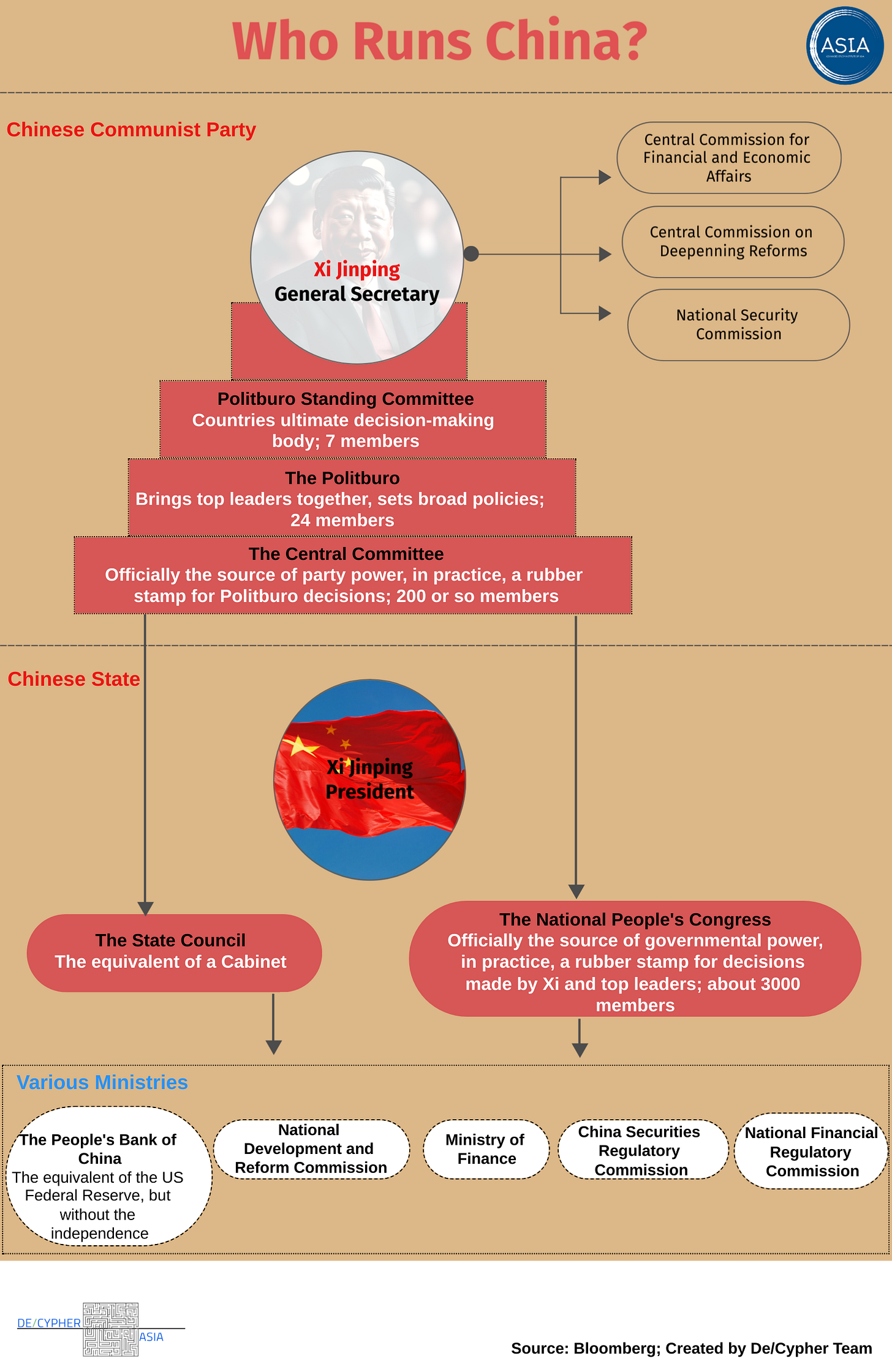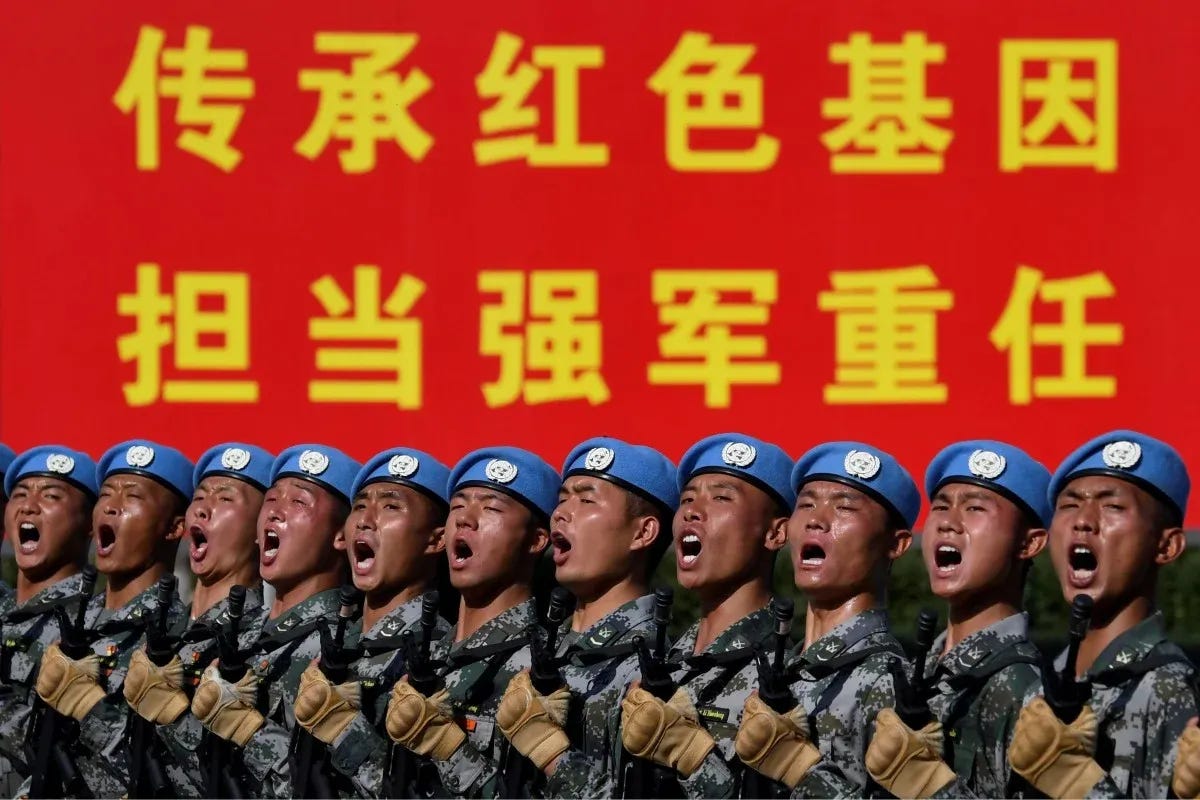"Tensions Between China and NATO Escalate; Extreme Heat Claims More Lives; And How Influential is China's First Lady?"
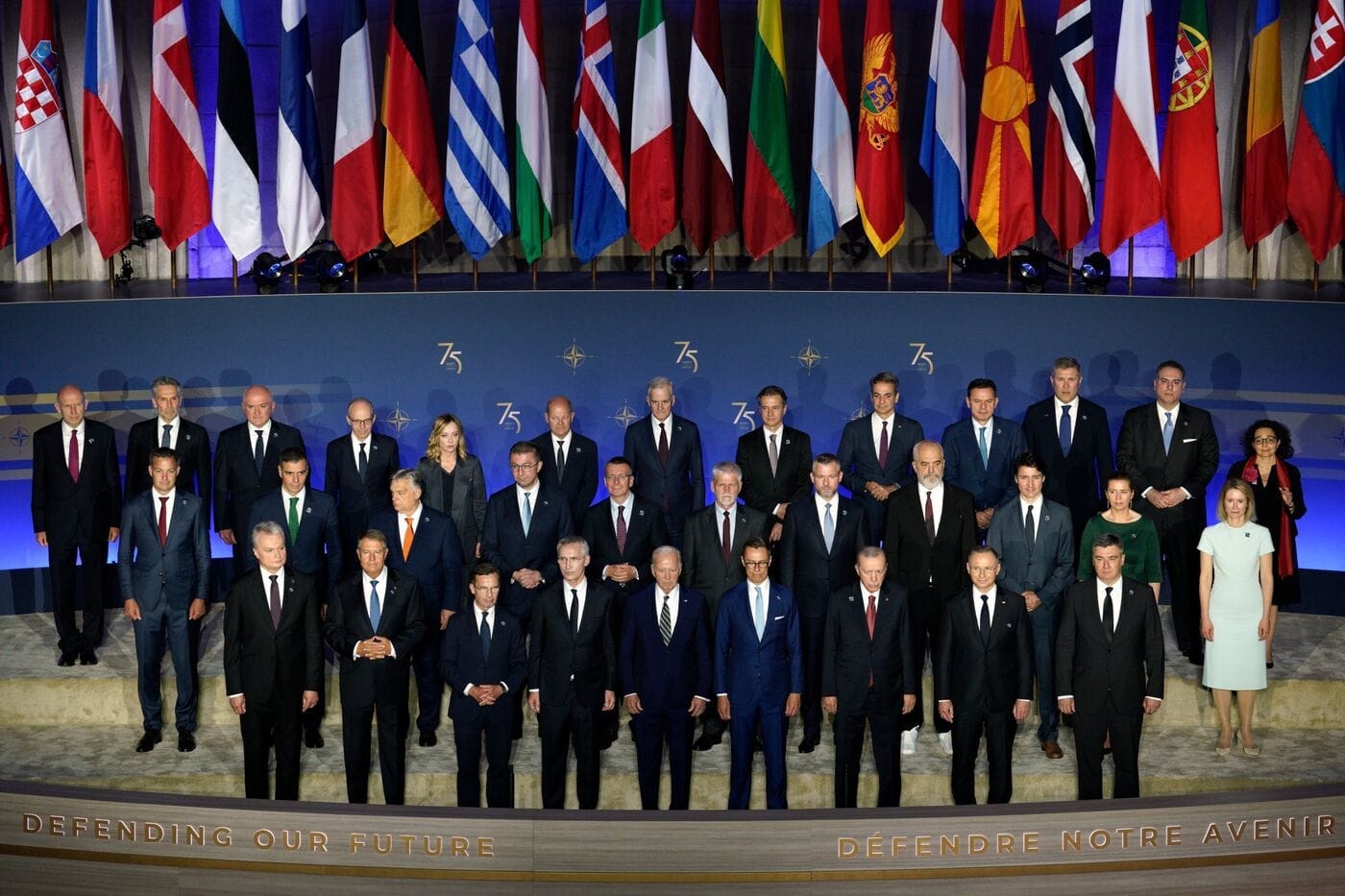
China in Quotes
"Whatever the policy framework, Starmer’s immediate inbox is likely to feature a range of China-related problems. He will face pressure from his party to speak up on human rights issues from Hong Kong to Xinjiang. There will be challenges related to Chinese interference in domestic affairs. There are festering diplomatic issues too, not least a simmering row over China’s plans to relocate its embassy, which has been blocked by a local London council, much to Beijing’s displeasure"
-James Crabtree, FP
De/Cypher Data Dive📈
De/Cypher Signal🚥
Theatre for War: Understanding US-China relations through the South China Sea Conflict
Written by Priyanka Garodia, Geopolitical Research Analyst - South Asia
The South China Sea region has emerged as a security concern for regional and non-regional actors alike, owing to its high economic and strategic importance. Sovereign claims on the islands in the region has led to significant multilateral tensions in the zone. Most territorial disputes with Vietnam, the Philippines and the Chinese stem from contesting claims on EEZs. China has adopted a highly aggressive stance with the establishment of the nine-dash-line in the region that it claims is Chinese land. However, the nine-dash-lane cuts into Filipino and Vietnamese territories. The Paracel Islands are under full Chinese control, a claim that Vietnam refutes. The Philippines lays claim over the Spratly Islands, the Kalayaan Islands and Scarborough Shoal. Vietnam lays claim to the entirety of the Spratly Islands and the western region of the SCS. The territorial dispute between China, Philippines, Vietnam and other nations has led to the militarisation of the area.
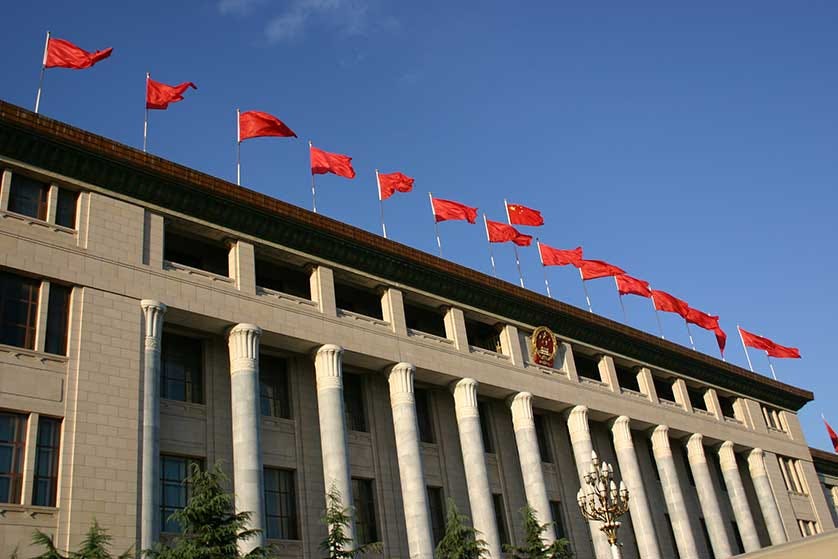
Quick China: Unmissable Stories 📜
Deflation pressure still lingers on
China’s consumer prices eked out another small gain in June, hovering near zero for a fifth month, a sign that deflationary pressures continue to impede an economic recovery. China’s consumer prices eked out another small gain in June, hovering near zero for a fifth month, a sign that deflationary pressures continue to impede an economic recovery. (Bloomberg)
US has a largely positive image when compared with China
The US had a largely more favorable image than China in 35 high- and middle-income countries surveyed by the Pew Research Center, showing Beijing’s effort to win hearts and minds globally still has a ways to go. More than twice as many people saw the US positively than they viewed China across 18 high-income countries, with the gap most stark in Poland, Japan, the US and South Korea, survey results released Tuesday suggested. That contrasts with views in the 17 middle-income countries polled, which favored both countries similarly. The survey results show both a challenge and an opportunity for Beijing, which is seeking to weaken the US’ global influence and court Global South countries. While middle-income countries tended to have a rosier view of China, the US maintained a slight edge even among the poorer group of nations in the surveys conducted earlier this year. (Bloomberg)
China’s New IPO Restrictions Lead To Massive Drop in New IPO’s
A staggering 315 Chinese companies have withdrawn their initial public offering (IPO) applications so far this year, with more than 100 pulling out in June alone. The withdrawals followed the release of the National Nine Articles policies, which have led to stricter listing standards on the Shanghai and Shenzhen exchanges since April 30.
The new standards require that a company seeking a listing on the main board reports a net profit of at least 100 million yuan ($13.75 million) in the past year, while those seeking listing on the Growth Enterprise Market, known as the GEM, need to show a net profit of 60 million yuan.
Facing tougher benchmarks, companies not meeting the criteria have opted to withdraw their application. In addition, increased penalties on brokerages and investment banks have led to stricter internal controls within securities companies, adding to the IPO withdrawals. According to Caixin's calculation, as of July 8, there were 184 companies in the IPO queue, down from 389 on February 7. (Caixin)
Chinese Legal Scholars Call for Scrapping Residential Surveillance Measures for Extracting Confessions
Chinese legal scholars are calling for the abolition of a criminal detention procedure called “residential surveillance at a designated location,” stating that it has been abused by some law enforcement officers as an opportunity to torture criminal case suspects into making confessions. The procedure, as stipulated in the Criminal Procedure Law, is meant to provide a place to stay for suspects or defendants who have no fixed residence as well as individuals involved in major crimes endangering national security.
However, there is a lack of supervision throughout the process, from the selection of the site to the investigative activities carried out during the surveillance period, which increases the possibility of torture, said Beijing-based lawyer Zhou Ze at a seminar held by Hongfan Legal and Economic Studies Institute on June 29. Unlike other criminal compulsory measures such as detention and arrest, residential surveillance at a designated location does not require audio and video recording.
In recent years there have been a number of cases of the procedure being used as a means to torture suspects, with the situation “deteriorating rapidly in the past two years,” said Chen Yongsheng, a law professor from Peking University, according to a transcript of the seminar. (Caixin)
China's Envoy to South Korea Will Not Be Missed

China's outspoken ambassador to South Korea is set to complete a tumultuous tenure characterized by frequent comments seen as undiplomatic, blunt and even aggressive that came as Seoul pivoted to closer relations with countries increasingly wary of Beijing. Xing Haiming began his term as China's envoy in January 2020 and has overlapped with a decisive turn in South Korean foreign policy under President Yoon Suk Yeol, who took office in May 2022.
The conservative Yoon has been a vocal proponent of deepening ties with the U.S., his country's main ally, while healing divisions with historic rival Japan. South Korea, Japan and the U.S. have also worked to enhance trilateral cooperation amid worries over China's strengthening military and diplomatic posture in Asia while showing a united front in regard to North Korea and condemning Russia's invasion of Ukraine.
Xing has not been shy about criticizing Yoon's choices. His most headline-grabbing moment came last year in June when, during a meeting with opposition party leader Lee Jae-myung, he said Seoul would eventually come to regret siding with the U.S. over China. (Nikkei)
Xi Jinping's Wife Comes Under Greater Scrutiny

Looking into Chinese first lady Peng Liyuan, the wife of President Xi Jinping, one of the first things that jumps out is her impressive background. When she and Xi married in 1987, Peng already held a prominent position in the People's Liberation Army, neither as a soldier nor a commander but as a celebrity singer whose star shined bright across the country. Later, she served as head of the PLA's Song and Dance Troupe. She performed at home and abroad, with her final overseas bow coming in Tokyo in 2009 when her husband was serving as vice president. This week's China Up Close offers not only insights into how Peng contributed to her husband's rise to the top of the Chinese Communist Party but also examines speculation that in recent months she has been playing a behind-the-scenes role in the military's personnel affairs.
It's a story of a husband trusting his wife and of her helping him find the rungs on the ladder to success. In general, beautiful, but considering who the couple is and the crucial matters of state they are dealing with, it's also a complex tale of political intrigue. Perhaps this week's column is Act I of Peng and Xi's story, with subsequent acts playing out in the months ahead. (Nikkei)
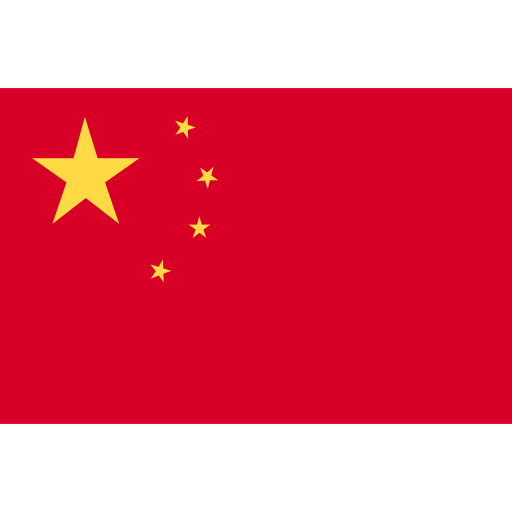
Beyond The Great Wall 🧱
Exploring News About China in Depth
Economy
China's EV Exports Slow in June as EU Imposes Tariffs
Tina Teng writes in Euro News that China's new energy vehicle (NEV) exports slowed in June due to new EU tariffs, with a 15.2% decrease from May. The tariffs, ranging from 17.4% to 37.6%, affect even Chinese-made Western brands like Tesla. Despite this, BYD plans to launch affordable models in Europe and establish new manufacturing plants in Hungary and Türkiye to mitigate the impact.
China Hopes Senior Citizens Can Spend the Country Out of Its Doldrums

Cissy Zhou writes in Nikkei that China aims to stimulate its economy by encouraging spending among senior citizens, projected to comprise 30% of the population by 2035. The government and private sectors are enhancing services and products for the elderly, with the silver economy potentially reaching 30 trillion yuan ($4.1 trillion). However, challenges persist, including low-income elderly and limited elderly-specific products and services.
Vanke Executives to Buy $27.5 Million of Shares to Show Their Faith in Company
Chen Bo and Denise Jia write in Caixin that China Vanke Co. Ltd. announced over 1,800 key managers will purchase 200 million yuan ($27.5 million) worth of shares to boost investor confidence. The move follows Vanke's warning of a first-half loss of 7 billion to 9 billion yuan amid a persisting property crisis. This initiative includes contributions from board directors, senior executives, and Party Committee members.
China’s Export Strength Drives Surplus to Highest Since 1990
Bloomberg reports that China's trade surplus reached a record high in June, with exports rising to $308 billion and imports falling to $209 billion. The $99 billion surplus reflects strong production and weak domestic demand. This imbalance has increased tensions with trade partners, leading to more tariffs on Chinese imports and potential trade conflicts, particularly with the EU. The robust exports highlight China's economic reliance on foreign markets amid domestic challenges, with upcoming economic data expected to pressure leaders for more stimulus to meet growth targets.
Internal Politics 🏛️
Former Geological Survey Head Arrested for Leaking State Secrets
Yang Zekun writes in China Daily that Zhong Ziran, former head of the China Geological Survey, has been arrested for accepting bribes and leaking State secrets. Following an investigation by the National Commission of Supervision, Zhong's case has been transferred for prosecution. Zhong, who served as director and Party secretary of the China Geological Survey from 2014 to 2022, was expelled from the Communist Party last month. Under Chinese law, leaking State secrets can result in imprisonment of up to seven years.
China Rocked by Cooking Oil Contamination Scandal
João da Silva writes in BBC China is investigating allegations that fuel tankers, previously carrying toxic chemicals, were used to transport cooking oil without proper decontamination. The scandal, widely discussed on social media, has raised significant concerns about food safety. Major companies like Sinograin and Hopefull Grain are implicated, with both initiating internal reviews. The government has vowed strict punishment for those responsible and promised to publish the investigation's findings promptly.
China’s Military Commits to Full ‘Rectification’ in Corruption Investigations’ Wake
Xinlu Liang writes in SCMP that China's Central Military Commission (CMC) announced a comprehensive rectification of the People’s Liberation Army (PLA) following corruption allegations against former defense ministers Li Shangfu and Wei Fenghe. The CMC emphasized intensified political education and strict discipline to advance military development and readiness. This initiative aligns with President Xi Jinping’s directive to maintain absolute party loyalty and eliminate corruption within the military. The rectification will include reviews of policies, personnel, and organizational practices to strengthen integrity and party control.
China Issues White Paper on Marine Eco-Environmental Protection
China Daily reports that China's State Council Information Office released a white paper titled "Marine Eco-Environmental Protection in China," outlining the country's efforts and achievements in marine conservation. The document highlights systematic governance, science-based restoration, and international cooperation. It emphasizes China's commitment to building a harmonious coexistence between humans and the ocean, showing marked improvement in marine ecosystems.
China And The World🌐
Xi Meets Hungarian Prime Minister, Exchanging Views on Ties, Ukraine Crisis
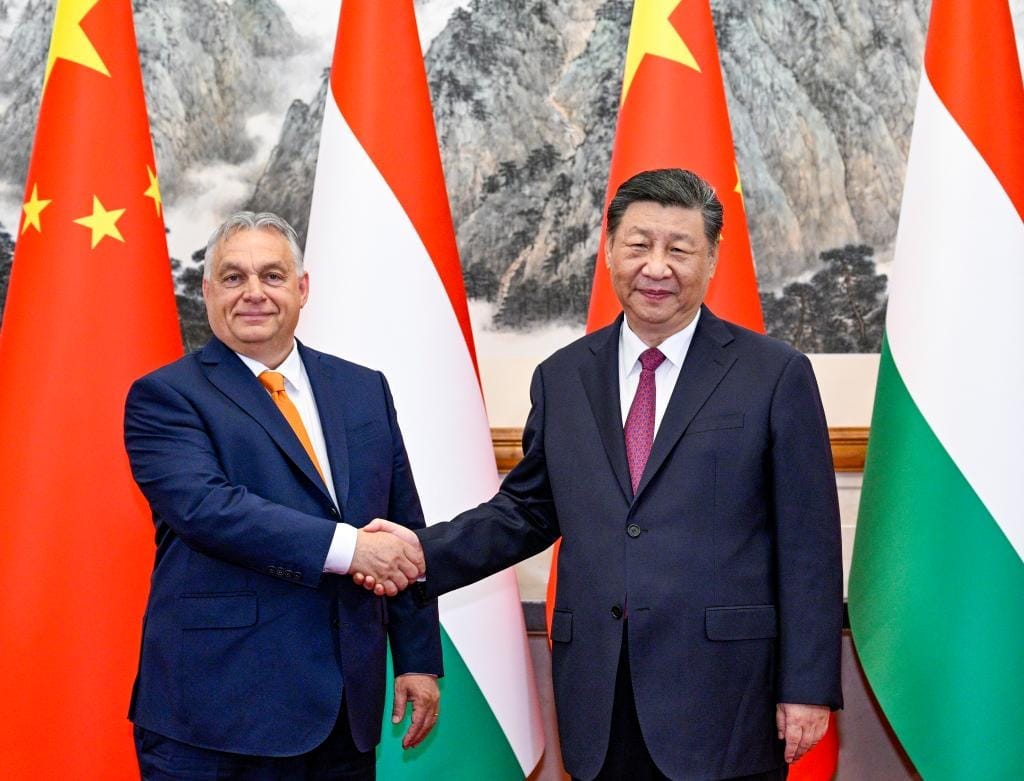
Xinhua reports that Chinese President Xi Jinping and Hungarian Prime Minister Viktor Orban met in Beijing to discuss the Ukraine crisis and bilateral relations. Xi appreciated Orban's efforts for a political resolution and emphasized the need for a ceasefire. They agreed on deepening strategic communication, enhancing cooperation, and promoting China-EU relations, with Hungary playing a pivotal role during its EU presidency.
Chinese, Guinea-Bissau Presidents Hold Talks, Elevate Ties
CGTN reports that Chinese President Xi Jinping and Guinea-Bissau President Umaro Sissoco Embalo announced the elevation of their bilateral relations to a strategic partnership during talks in Beijing. Xi emphasized China's support for Guinea-Bissau's development and cooperation in various sectors, including agriculture, mining, and infrastructure, under the Belt and Road Initiative. Both leaders highlighted the importance of mutual support, with Embalo reaffirming Guinea-Bissau's commitment to the one-China principle.
China, Bangladesh Elevate Ties
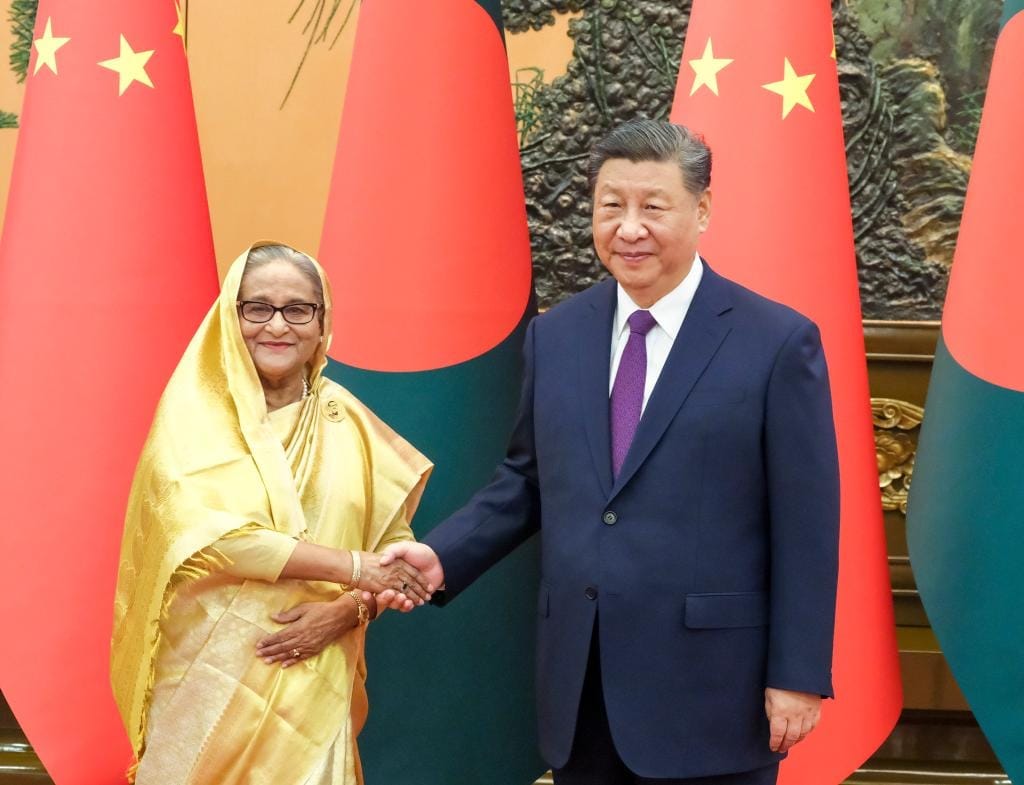
Xinhua reports that Chinese President Xi Jinping and Bangladeshi Prime Minister Sheikh Hasina elevated their bilateral relations to a comprehensive strategic cooperative partnership during their meeting in Beijing on July 10, 2024. The announcement signifies a deepening of cooperation and mutual support between China and Bangladesh.
U.S. Navy Visits Former Base in Vietnam's Strategic Cam Ranh Bay
Lien Hoang writes in Nikkei that the U.S. Navy's USS Blue Ridge and the Coast Guard cutter Waesche are visiting Vietnam's Cam Ranh Bay, a strategic South China Sea location. This visit signals U.S. support for Vietnam amid its territorial disputes with China. Despite Vietnam's non-alignment policy, former U.S. defense official Dov Zakheim emphasizes that a strong U.S. presence would deter Chinese aggression. The visit follows upgraded U.S.-Vietnam relations and coincides with Russia's continued interest in the bay.
China Building Two-Thirds of World’s Wind and Solar Projects
Amy Hawkins writes in The Guardian that China is leading the world in renewable energy, constructing nearly twice as much wind and solar power as the rest of the world combined. A Global Energy Monitor report highlights China’s 339GW of wind and solar power under construction, driven by strong government support. China is set to reach 1,200GW of installed capacity by the end of 2024, six years ahead of its target. However, despite this progress, China's coal consumption remains significant, necessitating further renewable capacity to meet carbon intensity reduction goals.
Chinese Student Pleads Guilty to Violating U.S. Espionage Act
Marrian Zhou writes in Nikkei that Shi Fengyun, a 26-year-old Chinese student, pled guilty to espionage misdemeanors for flying a drone near a U.S. naval facility in Virginia and taking photos of military infrastructure. The U.S. Department of Justice dismissed four of six charges. Shi could face up to two years in prison and fines of $100,000 per count.
Tokyo urged to reflect on its history of aggression
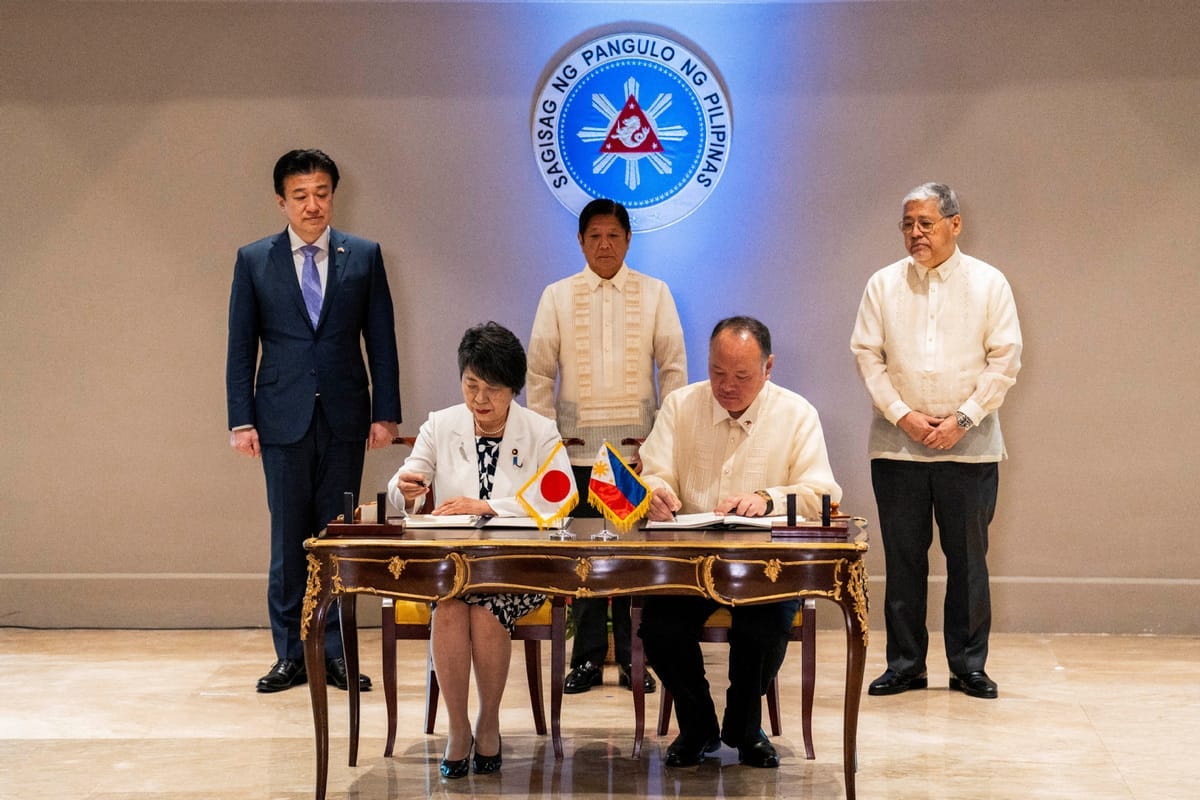
Zhang Yunbi writes in China Daily that China urged Japan to reflect on its wartime aggression after Japan signed a Reciprocal Access Agreement with the Philippines. The pact, allowing joint military exercises, drew criticism from China, warning against actions that could provoke regional instability. The agreement, signed by Philippine Defence Secretary Gilberto Teodoro and Japanese Foreign Minister Yoko Kamikawa, aims to bolster regional peace and a rules-based international order amid ongoing maritime disputes involving China.
Chinese Military in Belarus for Joint ‘Anti-Terrorist Training’ Near Poland, Ukraine
Seong Hyeon Choi writes in SCMP that Chinese and Belarusian troops have begun "Eagle Assault," a joint military exercise near Brest, close to Poland and Ukraine. This move, amid regional tensions, likely raises concerns among EU and NATO members. The drills, focusing on hostage rescues and anti-terrorist operations, signify deepening military ties between China and Belarus, which has supported Russia since the Ukraine invasion.
China Hits Back at Nato Over Russia Accusations
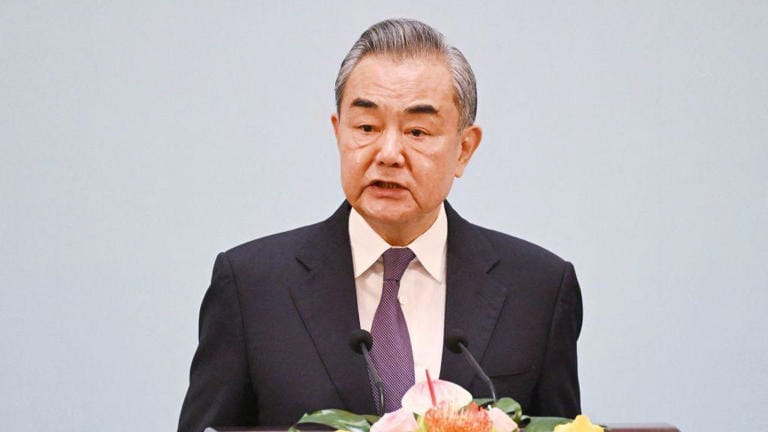
Tessa Wong writes in BBC that Chinese Foreign Minister Wang Yi rebuffed Nato's allegations that China supports Russia in its war on Ukraine, calling them "groundless." In a call with the Dutch foreign minister, Wang criticized Nato for inciting confrontation and defended China's stance as a force for peace. Nato had accused China of enabling Russia with material support and conducting cyber activities against Nato states. Beijing rejected these claims, maintaining its neutrality and proposing a peace plan, despite accusations of propping up Russia's economy through oil and gas purchases.
Digital economy cooperation a key focus with trade between Singapore and Shanghai up 7.8% in 2023
The Strait Times reports that Shanghai and Singapore are enhancing cooperation in economy, trade, scientific innovation, urban governance, and cultural exchanges, as discussed at the fifth meeting of the Singapore-Shanghai Comprehensive Cooperation Council (SSCCC). Established in 2019, the SSCCC focuses on collaboration in six key areas, including the Belt and Road Initiative and financial services. In 2023, trade between Shanghai and Singapore exceeded 107.5 billion yuan, with over 300 Singaporean businesses settling in Shanghai. New memorandums of cooperation were signed, aiming to further align development and foster mutual growth.
China ‘Blows Up’ U.S. Stealth Fighters In Precision-Strike Drills; Comes After Mock Attack On USS Gerald R Ford
Ritu Sharma writes in The Eurasian Times that recent satellite images suggest that China's military has been practicing strikes on US fighter jets and aircraft carriers in Xinjiang's deserts. The images, taken by Google Earth on May 29, show a model aircraft carrier and over 20 replicas of US stealth fighters. Analysts believe these exercises reflect China's strategy to neutralize threats from US naval forces and simulate realistic wartime scenarios, possibly targeting locations like Guam, Alaska, and Hawaii. The PLA's focus on long-range precision strikes is seen as part of its counter-intervention strategy against US and allied forces in the Western Pacific.
US President Joe Biden Renews Hong Kong’s ‘Emergency Status’ in Executive Order
Holly Chik writes in SCMP that US President Joe Biden renewed Hong Kong’s "emergency status" on Wednesday for the fourth consecutive year since the original order by former President Donald Trump in 2020. The renewal, required annually, revokes Hong Kong's preferential trade status and other privileges, citing actions by China that undermine Hong Kong's autonomy as a threat to US national security, foreign policy, and economy.
Tech🧑💻 in China
How a Chinese Team Used Quantum Tech to Follow Electrons on the Superconductor Trail
Zhang Tong writes in SCMP that a Chinese team led by Pan Jianwei has built a quantum computer to simulate electron movement in solid-state materials, a task beyond classical supercomputers. This advancement, marking the second stage of quantum computing, was achieved by overcoming major challenges and using machine-learning optimization.
Chinese Developers Scramble as OpenAI Blocks Access in China
Amy Hawkins writes in The Guardian that OpenAI’s decision to block access to its tools in China, amid US-China tensions, has triggered a rush among Chinese developers to adopt domestic AI models. Leading Chinese firms like SenseTime and Baidu are offering free tokens and migration services to lure users.
Xi Jinping and Mark Rutte: Navigating the Future of NATO and EU-China Relations

The outgoing Dutch Prime Minister, Mark Rutte, will begin his tenure as NATO Secretary General in October 2024. He steps into this role at a time of shifting global power dynamics, facing numerous challenges, including countering Chinese interests. Rising trade tensions between China and the European Union and China's support for Russia in its conflict with Ukraine presents strategic challenges for NATO, complicating the geopolitical landscape that Rutte must navigate.
Xi Jinping, born in 1953 in Beijing, has ascended from local governance positions to become the president of China and General Secretary of the Chinese Communist Party (CCP) since 2012. His unprecedented third term, which began in October 2022, has sparked speculation about his intention to hold power for life, drawing comparisons to former leader Mao Zedong.
Mao's influence on Xi is deeply rooted in his childhood, extending beyond mere symbolism. Xi's family held prominence in the party due to his father's role in Mao’s “Long March” in 1935. However, during Mao’s Cultural Revolution, his father was purged, and Xi was sent to the countryside for hard labor. This period of hardship shaped Xi’s resolve, and after Mao’s death in 1976, he leveraged his restored elite status to rise through party ranks, culminating in his promotion to the Politburo Standing Committee in 2007.
Xi's tenure has seen increased censorship, tighter civil society control, and a blend of market liberalization with state control. His economic policies, particularly the emphasis on reducing reliance on foreign technology and strengthening domestic capabilities, have escalated trade tensions with the EU. For instance, Xi's previous warning to Rutte against interfering with China's tech access highlights the friction between China’s high-tech ambitions and the EU’s protective measures.
China's "no limits" partnership with Russia and its substantial support for Russia's defense sector have drawn sharp criticism from NATO. NATO leaders have labeled China a "decisive enabler" of Russia's war effort, highlighting Beijing's role in providing dual-use goods that bolster Russia’s military capabilities. This partnership significantly impacts the ongoing conflict, complicating NATO's strategic landscape and requiring a firm yet balanced response from Rutte.
Mark Rutte, born in 1967 in The Hague, initially pursued a career in business before transitioning to politics in the early 1990s. Over his more than a dozen years at the helm of Dutch politics, Rutte earned the nickname "Teflon Mark" for his ability to navigate political challenges and maintain his position. As leader of the People's Party for Freedom and Democracy (VVD) and Prime Minister of the Netherlands since 2010, Rutte's tenure has been defined by economic liberalism, pragmatic governance, and coalition-building.
Rutte's extensive experience leading four Dutch multiparty governments has honed his consensus-building skills, which will be crucial in his role as NATO Secretary General. His diplomatic acumen was evident as he secured support from key NATO members, including the US, UK, and Germany, and navigated objections from Hungary and Turkey. Rutte's strong support for Ukraine, demonstrated by the Netherlands' pledges of military hardware, emphasises his commitment to the alliance’s strategic priorities.
Rutte's appointment to the NATO role comes at a critical juncture, following the resignation of his sole rival, Romanian President Klaus Iohannis. His support from major NATO members, such as the United States, United Kingdom, and Germany, highlights the importance of his leadership amidst Russia's ongoing aggression.
Balancing the EU's economic interests with political and human rights concerns in China will be a significant part of Rutte's tenure at NATO. His approach is likely to emphasize a coordinated response to China, promoting collective security while managing trade tensions. The Netherlands' pragmatic governance style under Rutte may serve as a model for NATO's engagement with China, balancing assertiveness with diplomatic negotiation.
The Challenge of Tracking Heat-Related Deaths in China and Beyond
Written By Farheen, Policy and Trust Analyst
As global temperatures continue to rise, the number of heat-related deaths is also increasing. It is crucial to accurately track these deaths, particularly in Asian countries like China, which are experiencing increasing impacts of climate change.
China, in particular, is facing significant challenges in dealing with extreme heat. Unlike some other Asian nations, the current system in China for recording heat-related deaths is inconsistent and often underestimates the true impact on public health. Between 1990 and 2019, annual heat-related mortality in China nearly quadrupled, with heatwaves accounting for approximately 20,000 additional deaths each year by 2019. The sharp increase highlights the critical need for improved tracking and data collection mechanisms. Current recording practices in China frequently fail to capture the full scope of heat-related deaths due to inconsistent reporting standards and a narrow definition of what constitutes a heat-related death.
In comparison, India, another country severely affected by extreme heat, has made progress in tracking these deaths through excess mortality studies and more comprehensive data collection at the local level. In 2024, India reported at least 143 heat-related deaths, but this figure is likely an underestimation given the country's stringent criteria for classifying a death as heat-related.
Similarly, in Japan, the Fire and Disaster Management Agency only tracks deaths caused directly by heat stroke, which may result in an underreporting of heat's overall impact on mortality. In contrast, Thailand has reported 63 heat-related deaths in 2024, but these figures are likely just the tip of the iceberg.
The inconsistency of recording methods across these countries emphasizes the need for a standardized approach to tracking heat-related mortality. Accurate data is required for designing effective public health interventions such as improving access to cooling centres, implementing urban planning measures to reduce heat exposure, and raising public awareness about the health risks associated with extreme heat.

News From Asia
Friday
South Korea will deploy drone-destroying laser weapons, dubbed the "StarWars Project," this year to counter North Korean unmanned aerial vehicles. (Arab News)
BeamTrail, an Emirati cyber company under the EDGE Group, is reorganizing its military activities to strengthen its position in the defense sector. (IO)
Indonesia’s anti-graft court sentenced former agriculture minister Syahrul Yasin Limpo to 10 years for extortion, abuse of power, and bribery. (AP)
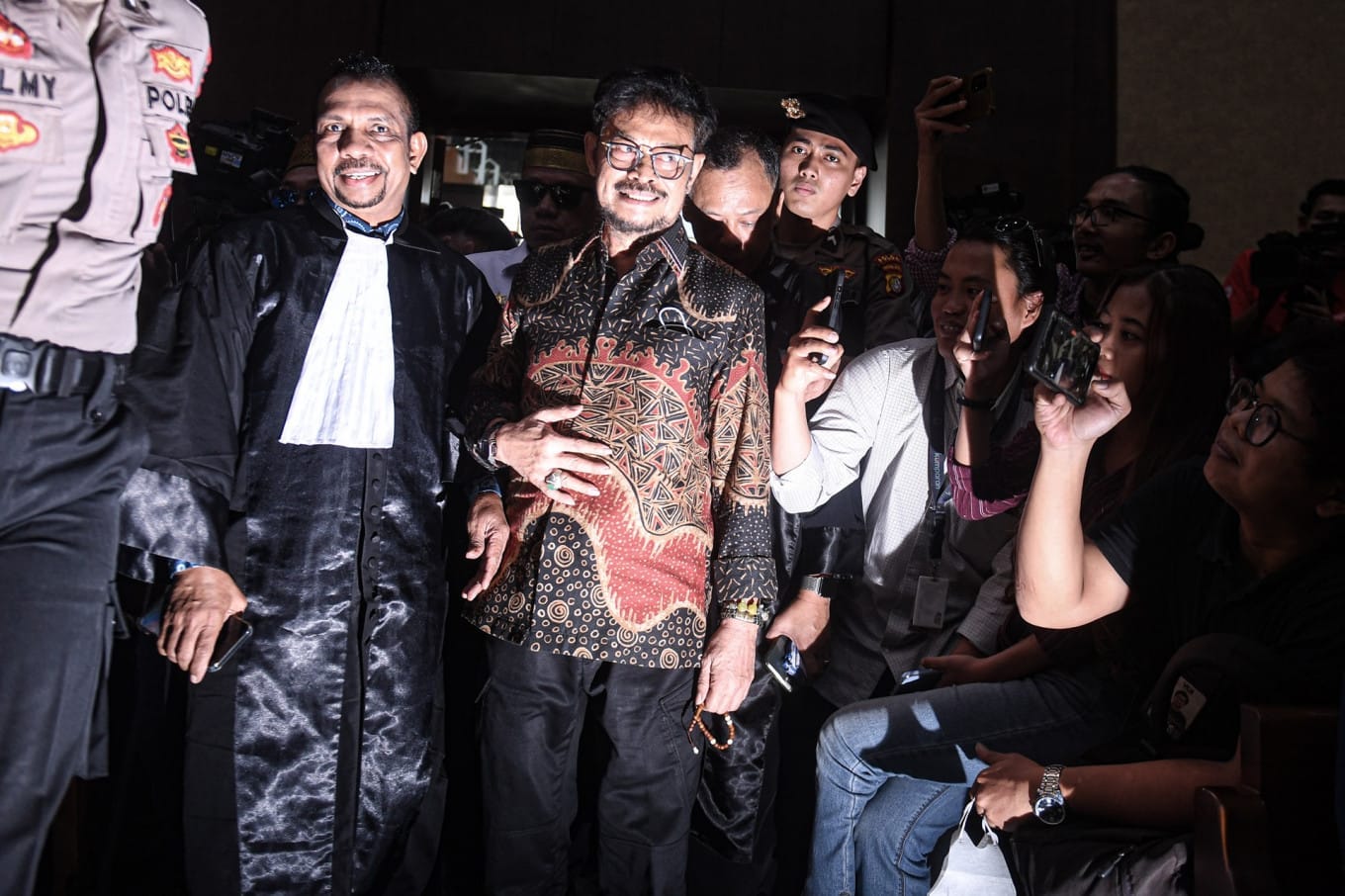
Nantes administrative court of appeal overturned the withdrawal of security clearance for a French police officer suspected of being a Chinese agent. (IO)
Thursday
Indonesia is looking to collaborate with Saudi Arabia to develop its intellectual property ecosystem, according to the government, after the two countries signed a cooperation agreement on the sidelines of the World Intellectual Property Organization meeting in Geneva. (Arab News)
Turkey's Pavo Group has allied with UAE's defence conglomerate EDGE Group, emphasizing Abu Dhabi's growing cooperation with the Turkish defence sector. (IO)
Yoko Kamikawa, Japan's Foreign Minister, and Ahmed Aboul Gheit, Secretary-General of the Arab League, met late Wednesday to discuss improving economic ties as well as Middle Eastern security and stability. (Arab News)
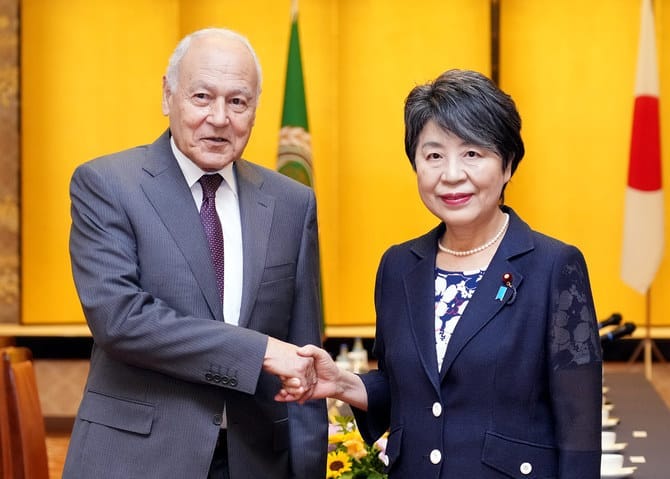
Indonesia’s anti-graft agency is embroiled in an online gambling scandal involving at least 17 current and former employees, from drivers to internal affairs staff. (CNA)
Wednesday
UN special rapporteur to Myanmar, Tom Andrews, warned that the junta appears to be "trying to destroy a country it cannot control." (Arab News)

Indigo Publications reports that Russia and North Korea have agreed to grant China direct access to the North Pacific via the Tumen River. (IO)
Abu Dhabi is in secret negotiations to purchase additional Rafale fighter jets from French manufacturer Dassault. (IO)
A railway union strike in Sri Lanka on Wednesday halted most train services, stranding tens of thousands of commuters. The Station Masters’ Union initiated the strike to demand staffing and administrative resolutions. (AP)
Tuesday
Kazakhstan's sovereign fund, Samruk-Kazyna, is engaging lobbyists to alleviate US concerns regarding its AI collaboration with Abu Dhabi's G42 group. The fund aims to assure Washington of its intentions amidst strengthening ties with the Emirati AI sector. (IO)
Capitalizing on the ongoing war in Ukraine, China has secured unlimited access to the North Pacific through the Tumen River. This strategic move results from an agreement between Russian President Vladimir Putin and North Korean leader Kim Jong-un, enabling Beijing to bypass Taiwan. (IO)
A North Korean elite military training delegation, led by Kim Geum Chol of Kim Il Sung Military University, has left for Russia, marking the first military exchange since leaders Kim Jong Un and Vladimir Putin signed a pact for closer military cooperation. (Reuters)
Myanmar's ethnic minority rebels have captured Thandwe Airport, serving the country's premier beach resort, Ngapali, marking the first seizure of such a facility by resistance forces. (AP)
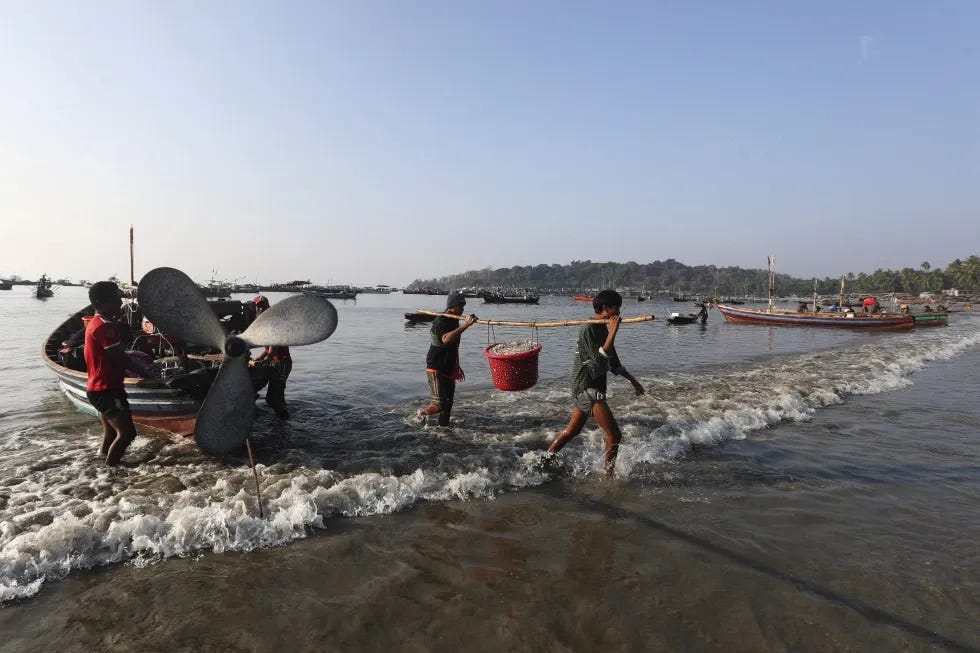
…


